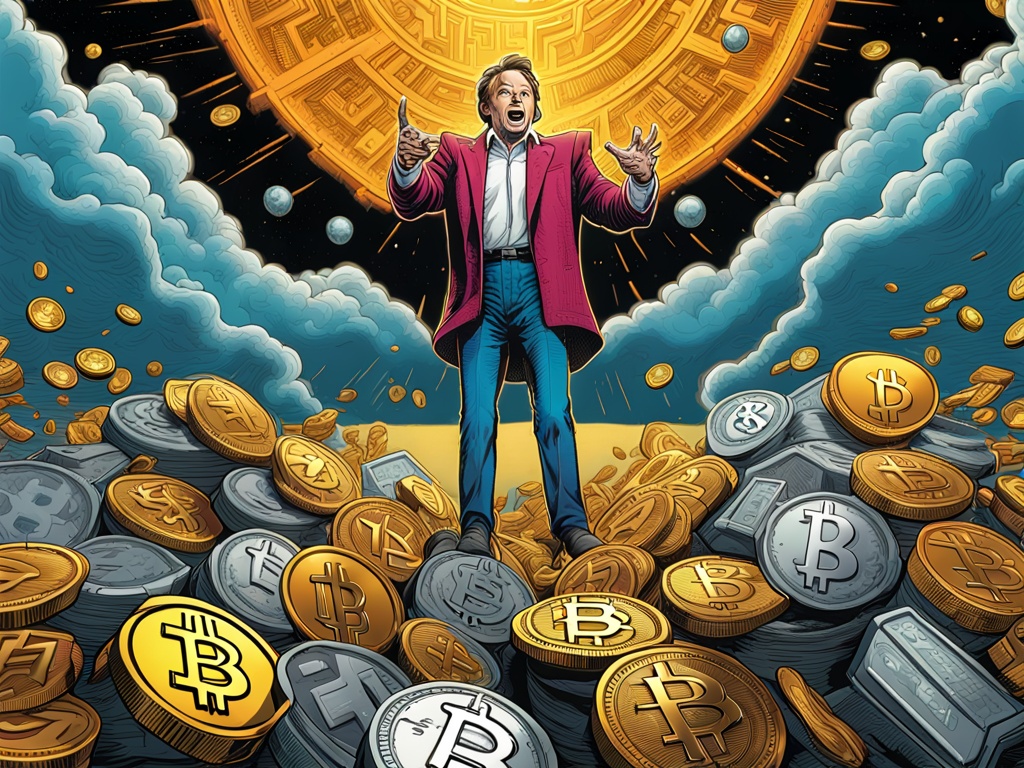What Does a $5.9 Million Ponzi Scheme Mean for the Crypto Market?
When you hear about a Ponzi scheme in the crypto space, especially one involving a pastor defrauding his congregation, it’s hard not to feel a mix of emotions—anger, sadness, and confusion. After all, the promise of quick and substantial returns often lures in the most unsuspecting investors. So let’s dive into this particular case, its implications for the broader crypto market, and what we can all learn from it.
Key Takeaways:
- A pastor has been accused of running a $5.9 million Ponzi scheme using a fake crypto trading platform.
- The scheme solicited investments from over 1,500 individuals, many from his church community.
- Regulatory bodies are cracking down on such fraudulent schemes, aiming for restitution and penalties.
- This incident highlights the importance of due diligence and skepticism in the crypto space.
The Case Breakdown
So, here’s what happened: Francier Obando Pinillo, a pastor from Pasco, Washington, allegedly ran a Ponzi scheme worth a staggering $5.9 million through his pseudo-company, Solanofi. This wasn’t just a simple case of financial mismanagement; it involved targeting roughly 1,515 individuals, many of whom were members of his Spanish-speaking congregation. It’s incredibly unsettling to think that someone in a position of trust could exploit that trust so brutally.
How the Scheme Worked
Pinillo claimed to be the CEO of Solanofi, showcasing it as an automated trading platform that promised risk-free profits through supposed high-performance trading of crypto assets. The appetizing bait? Guaranteed monthly returns of up to 34.9%. Can you imagine the excitement? Who wouldn’t want returns like that?
But here’s the kicker: there was no actual trading platform, and no trades ever took place. Instead, he manipulated participants with fake account balances and profits, supported by a flashy online dashboard. Participants were also lured in further with a 15% referral fee for convincing friends and family to invest. It’s classic pyramid-scheme behavior disguised in attractive crypto terminology.
The worst part? The lawsuit states that the whole operation was ultimately a sham, where funds from new investors were merely used to pay earlier ones—a hallmark of a Ponzi scheme.
The Ripple Effects on the Crypto Market
Now, you might be wondering why a case like this matters in the grand scheme of things. The crypto market, particularly, is already viewed skeptically by many because it’s relatively new and often associated with scams and fraud. This case exemplifies how vulnerable potential investors are, and how crucial it is for them to be cautious. The fallout can lead to tighter regulations and increased scrutiny, which could either stabilize the market or stifle its growth.
Increasing Regulatory Measures
Following the enforcement action, the CFTC is seeking restitution and other penalties. Regulatory bodies like the SEC and CFTC are on high alert, aiming to hold fraudsters accountable. Just this year, there have been other notable Ponzi schemes with large implications, reinforcing a trend of increasing scrutiny. Here’s a little rundown of those:
- In March, a $300 million Ponzi scheme targeted over 40,000 Latino investors.
- In August, another set of charges involved two brothers who allegedly defrauded investors out of $60 million.
- Also, NovaTech Ltd. was charged for a scheme that raised over $650 million.
These cases indicate a worrying trend. If you’re considering investing in cryptocurrency, it’s more critical than ever to do your own research.
Practical Tips for Investors
Feeling ready to dive into crypto? Hold on! Before you put your hard-earned cash on the line, consider these practical tips:
-
Do Your Homework: Research any platform rigorously. Look for reviews, see if they’re registered with any regulatory body, and check their reputation online.
-
Beware of Guarantees: If something sounds too good to be true, it usually is. High returns with little risk? Red flags should go up immediately.
-
Stay Informed: The crypto market shifts quickly. Follow trusted news sources, join online forums, or consult financial experts. Staying informed is your best defense.
-
Understand the Technology: Familiarize yourself with basic blockchain concepts and crypto terminology. The more you know, the sharper your instincts will be.
- Cultivate Skepticism: Be cautious about investment advice from people you consider “friends.” If they are promoting something that seems too good to be true, question it.
Personal Insight
Having navigated the fluctuating waters of the crypto market myself, I can tell you it’s a wild ride filled with potential but also risk. I’ve had my fair share of learning experiences, and trust me, some of those "sure" investments turned out to be anything but. This Ponzi case serves as a stark reminder that a little skepticism can save you a lot of regret.
Conclusion: Reflecting on Trust and Responsibility
To wrap it up, this case of a pastor running a Ponzi scheme is emblematic of a broader concern in the crypto industry. You invest not just your money, but your trust in the sources and individuals that promise to help you grow your wealth. As the market continues to mature, let’s hope there are fewer stories like this and more educational frameworks to empower investors.
So, what kind of safeguards do you think should be in place to protect investors from falling into the traps set by fraudsters? Reflecting on that might just ignite some vital conversations in your investment circles.





 By
By
 By
By
 By
By


 By
By